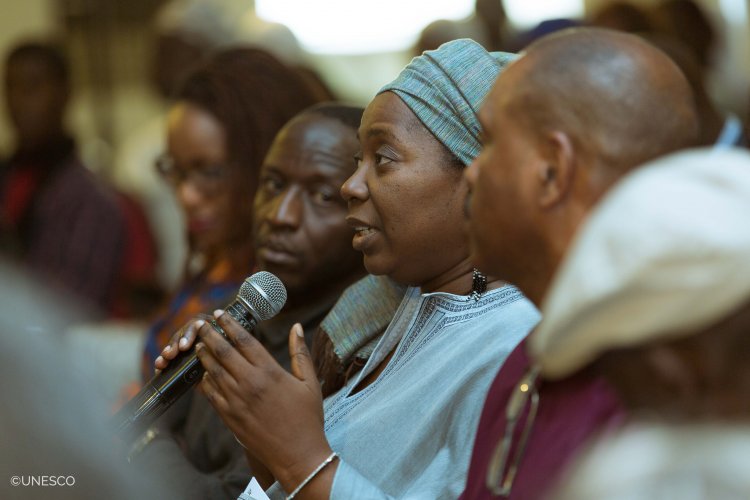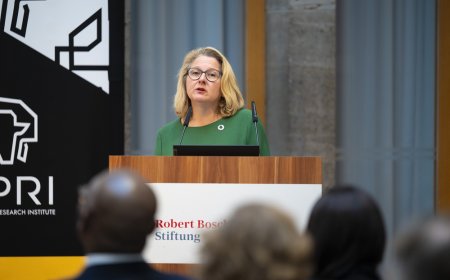Why APRI?
Germany needs an Africa institute that conducts independent, nonpartisan research which is practice-oriented and interdisciplinary. One that has its feet firmly rooted in Europe and Africa and can therefore credibly serve as a trusted platform of engagement for African and European stakeholders. One that seeks innovative ways of engaging with policymakers and the public on both continents.
Berlin is getting an African institute that is all this and much more.
What Is APRI?
APRI is a Berlin-based, independent, nonpartisan policy institute that seeks to provide insights on Africa-related policymaking processes to Germany and the European Union. We also strive to provide policy options to African stakeholders.
What Is Different About APRI?
We are an African think tank, meaning that we conduct policy-actionable research on Africa from an African perspective. We prioritize the voices and perspectives of African researchers, scholars, and intellectuals on policy issues that concern Africans. This allows our research to be grounded in the lived experiences and realities of Africans and African policymakers. The consideration here is that only questions that are properly framed in a way that reflects realities can lead to recommendations that will work.
Observing how stagnant policy debates seem to have become, we are also shaking things up by bringing a diversity of voices to policy discussions. As you will notice, our fellows come from diverse academic and career backgrounds. We want to push against the hegemonies that prioritize certain ways of knowing.
What Does APRI Work On?
With our Economy & Society Program, we first want to understand things as they are—before seeking ways to make them better. We want to know how African bureaucracies work and why policymakers make the choices they make. We want to understand the constraints that governments and private-sector actors face. And we want to know how Germany, the European Union, and other partners worldwide can work with them without unnecessarily constraining their policy space.
Under our Africa's Climate Agenda Program, we seek to understand and support African priorities in the face of the climate crisis. African countries need to balance their efforts to address the climate crisis with their national development goals regarding industrialization, economic growth, and job creation for the youngest populations in the world. Our objective is to understand what this balance means for economic and social policies in African countries. Our approach looks inwards to co-develop pragmatic options with African stakeholders and partners, options that can ensure a just transition.
With our Africa's Digital Agenda Program, we seek to understand Africa's digital agenda and propose appropriate solutions that will catalyze Africa's digital connectedness with the help of African actors. We aim to generate evidence-based research that strategically positions African governments to accelerate their digital transformation. Our work will contribute to local, national, regional, and global dialogues on topics such as Africa's e-commerce, digital taxation, and the geopolitics of the altering global digital agenda and Africa's place in it.
What Does APRI Produce?
At launch, we produce policy briefs, commentaries, and short analytical articles. We have also created a line of publications called briefing notes. It features short notes from academic researchers about their publications, teasing out the policy implications for German and European Union policymakers where relevant.
We will be organizing events to discuss our findings with the public and policymakers from both continents. We are also working on other innovative formats for presenting our work and engaging with the public.




